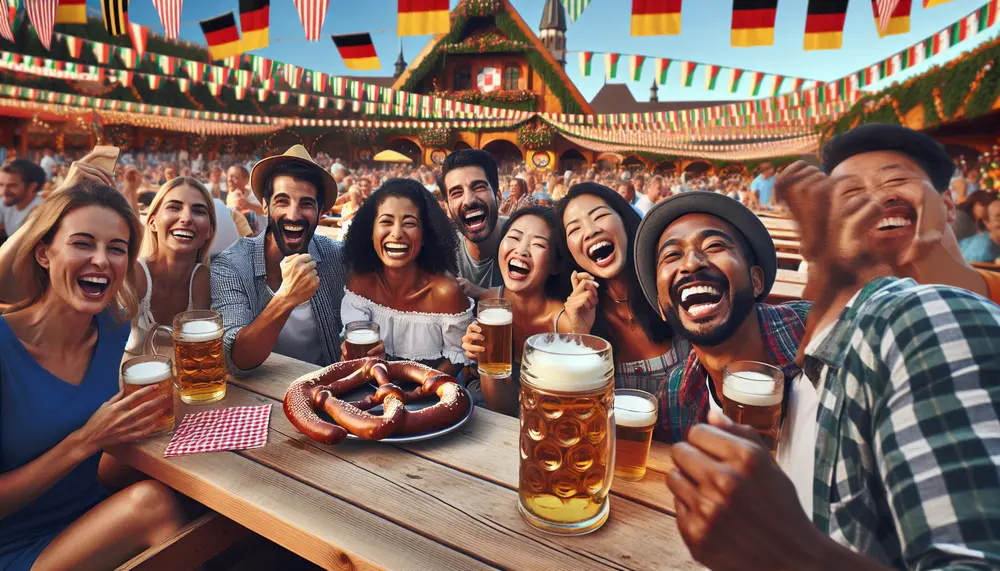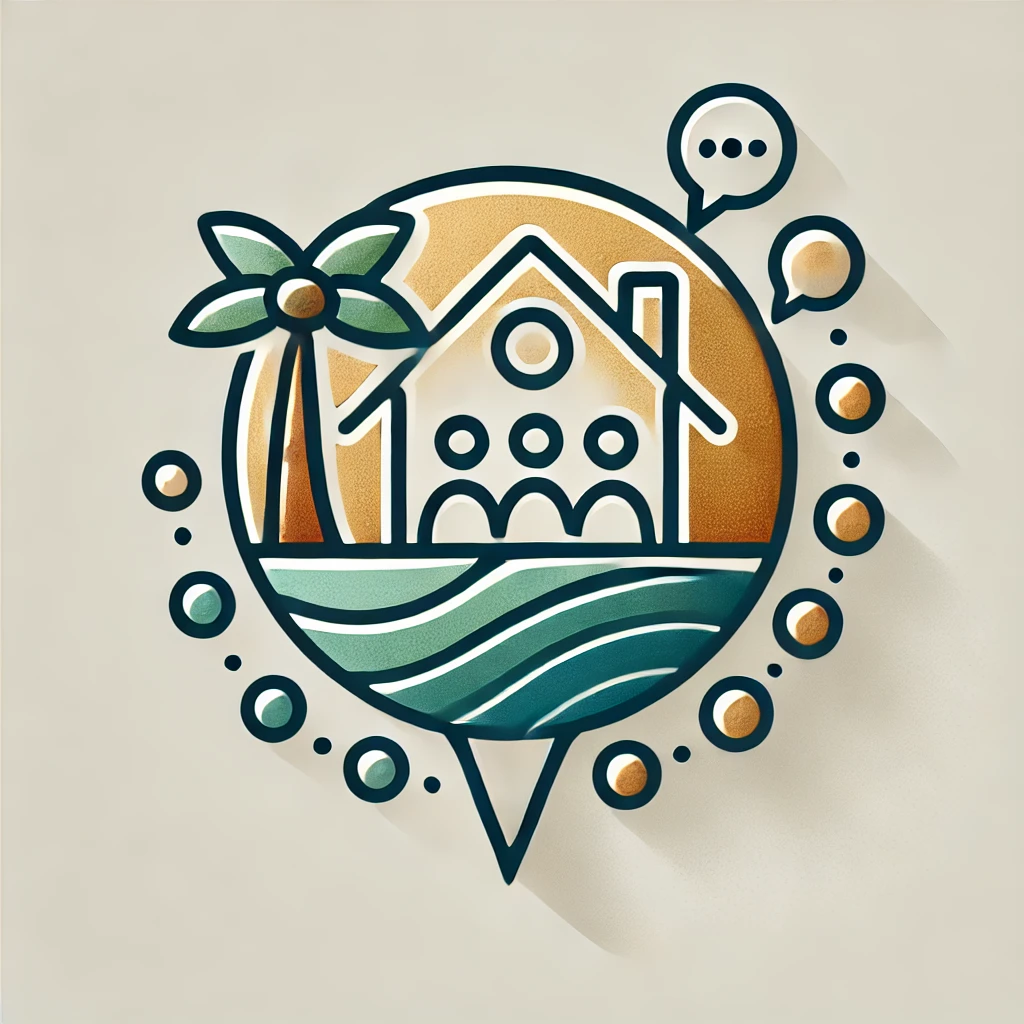Table of Contents:
Introduction to German Beer Festivals
German beer festivals are a vibrant celebration of culture, tradition, and community. These events offer a unique glimpse into the heart of German life, where beer is more than just a beverage—it's a symbol of heritage and craftsmanship. Attendees can expect a lively atmosphere filled with music, dancing, and, of course, a wide array of beers to sample.
These festivals are not just about drinking; they are about experiencing the rich tapestry of German customs. From the traditional Bavarian attire to the hearty food offerings, every element is designed to immerse visitors in an authentic cultural experience. Whether you're a beer enthusiast or a curious traveler, German beer festivals provide an unforgettable adventure into the world of pilsners and pretzels.
The Heritage of German Beer
The heritage of German beer is deeply rooted in centuries-old traditions that have shaped its unique identity. German brewers have long been guided by the Reinheitsgebot, or the Beer Purity Law, established in 1516. This law mandated that beer could only be made from water, barley, and hops, ensuring high quality and consistency.
Over the years, this commitment to purity and excellence has led to the development of a diverse range of beer styles, each with its own distinct flavor profile. From the crisp and refreshing pilsners to the rich and malty bocks, German beers are celebrated for their balance and craftsmanship.
German beer culture is not just about the drink itself but also about the social rituals surrounding it. Beer gardens and halls serve as communal spaces where people gather to enjoy good company and lively conversation. This sense of community and tradition is what makes German beer festivals so special, as they bring people together to celebrate a shared heritage.
Pros and Cons of Attending German Beer Festivals
| Aspect | Pros | Cons |
|---|---|---|
| Atmosphere | Vibrant and filled with music and dancing | Can be overwhelming for those who prefer quieter settings |
| Beer Variety | Wide array of high-quality beers to sample | Difficult to try everything without overindulging |
| Food | Authentic German food like sausages and pretzels | May not cater to all dietary requirements |
| Cultural Experience | Immerse in German traditions and heritage | Cultural nuances might be unfamiliar to some visitors |
| Social Interaction | Opportunity to meet people from around the world | Large crowds can make navigation difficult |
Exploring the Variety of Pilsners
Pilsners are among the most popular and widely recognized German beer styles. Originating in the Czech city of Pilsen, this style has been embraced and perfected by German brewers. Known for their crisp and clean taste, pilsners are characterized by a light golden color and a balanced hop bitterness.
German pilsners are distinct from their Czech counterparts, often featuring a slightly drier finish and a more pronounced hop aroma. This makes them an ideal choice for those who appreciate a refreshing yet flavorful beer. The brewing process involves using noble hops, which contribute to the pilsner's signature floral and spicy notes.
Exploring the variety of pilsners at a German beer festival is a delightful journey through subtle differences in taste and aroma. Each brewery offers its own take on this classic style, allowing festival-goers to discover new favorites and appreciate the nuances that make each pilsner unique.
The Role of Pretzels in Beer Culture
Pretzels hold a special place in German beer culture, serving as the perfect accompaniment to a refreshing pint. These iconic baked goods are more than just a snack; they are a symbol of German hospitality and tradition. Their soft, chewy texture and salty crust make them an ideal pairing with the crisp flavors of pilsners and other German beers.
Their origins date back centuries, with pretzels often associated with religious symbolism and monastic life. Today, they are a staple at beer festivals, where they are enjoyed by locals and visitors alike. The traditional large, twisted shape of the pretzel is instantly recognizable and adds to the festive atmosphere of any beer gathering.
At German beer festivals, pretzels are often served warm and fresh, enhancing their appeal. They provide a satisfying contrast to the effervescence of beer, making them a beloved part of the beer-drinking experience. Whether enjoyed plain or with mustard, pretzels are an essential element of the convivial spirit that defines German beer culture.
Iconic German Beer Festivals
Germany is home to some of the most iconic beer festivals in the world, each offering a unique experience steeped in tradition and local flavor. These festivals attract millions of visitors annually, eager to partake in the joyous celebration of beer and culture.
Perhaps the most famous of all is Oktoberfest in Munich, a grand event that spans over two weeks and features massive beer tents, traditional Bavarian music, and vibrant parades. Visitors can enjoy a wide variety of beers, brewed specifically for the festival, alongside hearty Bavarian cuisine.
Another notable festival is the Stuttgart Beer Festival, also known as Cannstatter Volksfest. This event rivals Oktoberfest in size and popularity, offering a more regional twist with its Swabian culinary delights and local brews.
For those seeking a more intimate experience, the Berlin Beer Festival provides a diverse selection of beers from around the world, set against the backdrop of the bustling capital city. Each festival showcases the rich diversity of German beer culture, inviting attendees to immerse themselves in the traditions and flavors that make these events truly unforgettable.
Experiencing Authentic Festivities
Experiencing authentic festivities at a German beer festival is a sensory delight that goes beyond the beer itself. These events are a feast for the senses, offering a rich tapestry of sights, sounds, and flavors that capture the essence of German culture.
Visitors are greeted by the lively sounds of traditional oompah bands, whose upbeat tunes set the tone for a festive atmosphere. The music, often accompanied by dancing, invites everyone to join in the merriment, creating a sense of community and joy.
The visual spectacle of colorful costumes, from lederhosen to dirndls, adds to the authenticity of the experience. These traditional garments are worn with pride, reflecting the cultural heritage and regional diversity of Germany.
Food stalls offer a variety of regional specialties, from sausages and schnitzels to sweet treats like apple strudel. Each dish is a testament to the rich culinary traditions that complement the beer offerings. Together, these elements create an immersive experience that allows visitors to fully embrace the spirit of German beer festivals.
Tips for Attending a German Beer Festival
Attending a German beer festival is an exciting adventure, but a little preparation can enhance your experience. Here are some tips to help you make the most of your visit:
- Plan Ahead: Popular festivals like Oktoberfest can get crowded, so it's wise to book accommodations and transportation early. Consider visiting on weekdays for a less hectic experience.
- Dress the Part: Embrace the tradition by wearing Bavarian attire. Lederhosen for men and dirndls for women are not only fun but also help you blend in with the locals.
- Pace Yourself: With so many beers to try, it's important to drink responsibly. Take breaks, hydrate with water, and enjoy the food offerings to keep your energy up.
- Learn Some Phrases: Knowing a few basic German phrases can enhance your interactions with locals and make the experience more enjoyable.
- Bring Cash: While many places accept cards, having cash on hand is useful for smaller vendors and tips.
By following these tips, you'll be well-prepared to enjoy the vibrant atmosphere and rich traditions of a German beer festival. Whether you're a first-time visitor or a seasoned attendee, these events offer a memorable glimpse into the heart of German culture.
Conclusion: Embracing the Spirit of German Beer Traditions
In conclusion, German beer festivals offer a unique opportunity to immerse oneself in a rich cultural tradition that celebrates community, craftsmanship, and joy. These events are more than just gatherings to enjoy beer; they are a testament to the enduring spirit of German heritage.
From the variety of pilsners to the iconic pretzels, every element of these festivals is steeped in history and tradition. The lively music, traditional attire, and regional foods all contribute to an authentic experience that welcomes visitors from around the world.
By embracing the spirit of German beer traditions, attendees can gain a deeper appreciation for the cultural significance of these festivals. Whether you're savoring a new beer, dancing to an oompah band, or simply enjoying the camaraderie of fellow festival-goers, these events offer a memorable glimpse into the heart of Germany's vibrant beer culture.
Exploring the Essence of German Beer Festivals
What makes German beer festivals unique?
German beer festivals stand out for their celebration of culture, tradition, and community, offering a lively atmosphere with music, dancing, authentic food, and a wide array of high-quality beers.
What is the significance of the Reinheitsgebot in German beer culture?
The Reinheitsgebot, or Beer Purity Law, established in 1516, mandates that beer can only be made from water, barley, and hops. It ensures the quality and consistency of German beers, embodying a long-standing tradition and craftsmanship.
How do pilsners differ between German and Czech styles?
German pilsners are known for a slightly drier finish and more pronounced hop aroma compared to their Czech counterparts. They exhibit a crisp and clean taste, making them refreshing yet flavorful.
What role do pretzels play in German beer festivals?
Pretzels are a symbol of German hospitality and tradition, serving as the perfect accompaniment to beer. Their soft texture and salty crust complement the flavors of German beers, enhancing the festival experience.
What are some practical tips for attending a German beer festival?
Plan ahead by booking accommodations early, embrace tradition by wearing Bavarian attire, pace yourself to enjoy responsibly, learn basic German phrases for better interactions, and carry cash for small vendors and tips.



